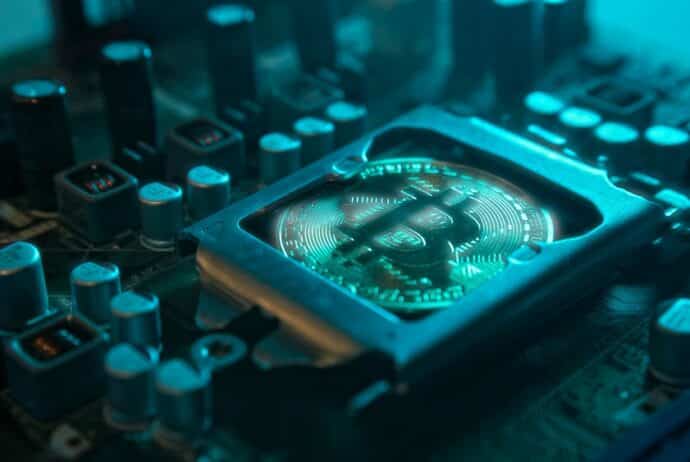Key Insights:
- Paraguay’s new bill proposes up to 10 years in prison for illegal Bitcoin miners, targeting power theft and unauthorized activities.
- Confiscation of mining equipment is included in Paraguay’s proposed legislation to deter illegal Bitcoin mining operations.
- Licensed Bitcoin mining in Paraguay could generate up to $125 million annually, presenting an economic opportunity amidst regulatory changes.
The government of Paraguay has proposed a bill aimed at imposing severe penalties on illegal Bitcoin miners. The bill, which has been sent to parliament, suggests a prison sentence of up to ten years for individuals involved in unauthorized mining operations. Presidential spokesperson Paula Carro emphasized the urgency of this legislative measure, highlighting the government’s commitment to protecting the nation’s electricity resources.
Paula Carro detailed the government’s rationale behind the proposed bill, citing the threat posed by illegal Bitcoin mining to Paraguay’s National Electricity Administration (ANDE). Illegal mining operations are known to siphon large amounts of electricity, resulting in power shortages and affecting regular power distribution. To mitigate these issues, the government aims to amend Article 173 of Paraguay’s Penal Code, introducing a maximum prison sentence of ten years for power theft.
In addition to the prison terms, the proposed legislation includes provisions for the confiscation of mining equipment from illegal operators. This would encompass electrical transformers, ASIC miners, and other related devices, further dissuading unauthorized mining activities. The government’s swift action underscores its determination to safeguard the nation’s power infrastructure from illicit exploitation.

CypherMindHQ.com Artificial Intelligence Crypto Trading System - Surpass the competition with this cutting-edge AI system! Utilize the prowess of innovative algorithms and amplify your crypto trading strategies with CypherMindHQ. Learn more today!
Historical Context and Previous Measures
Paraguay has been actively targeting illegal Bitcoin mining for some time. In September, authorities fined a Bitcoin miner $5,000 for unbilled power consumption and the cost of ANDE’s intervention, as stipulated under Paraguay’s Law 966.
Moreover, in March, the country secured its first legal conviction against two Bitcoin miners. Subsequently, in April, it shut down a mining farm, which caused the government a financial loss of $1.3 million.
These actions reflect a consistent effort by Paraguayan authorities to curb illegal mining operations and their adverse effects on the country’s power resources. The new bill represents a continuation and intensification of these efforts, aiming to impose stricter penalties to deter illegal activities.
Economic Considerations and Licensed Mining Operations
Amid the crackdown on illegal mining, Paraguay’s government and lawmakers are also weighing the economic benefits of regulated Bitcoin mining. Last month, a draft bill was introduced to ban all Bitcoin mining in the country for 180 days or until new regulations were established. However, the potential economic repercussions of such a blanket ban prompted a reevaluation.
Senator Salyn Buzarquis proposed an alternative approach, advocating for the sale of surplus energy to licensed Bitcoin miners. He argued that this strategy could generate substantial revenue for the ANDE, estimating that the 45 licensed Bitcoin miners could contribute $48 million annually. With further investment in mining equipment and increased capacity, this figure could rise to $125 million by the following year. The Senate approved Buzarquis’ draft letter on April 10, reflecting a shift towards regulated mining as a viable economic opportunity.
Controversies and Alternative Proposals
While the proposal to sell excess power to licensed Bitcoin miners has garnered support, it has been subject to controversy. Some citizens and political critics argue that surplus energy should be allocated to support poorer families instead of commercial mining operations. This perspective underscores a broader debate on the most beneficial and equitable use of Paraguay’s energy resources.
Paraguay’s status as an energy exporter, with large hydroelectric power stations like the Itaipu plant, uniquely positions it in the global energy market. Despite regularly selling excess electricity to neighboring countries such as Brazil and Argentina, there is growing interest in redirecting this surplus to support domestic economic activities, including regulated Bitcoin mining.



